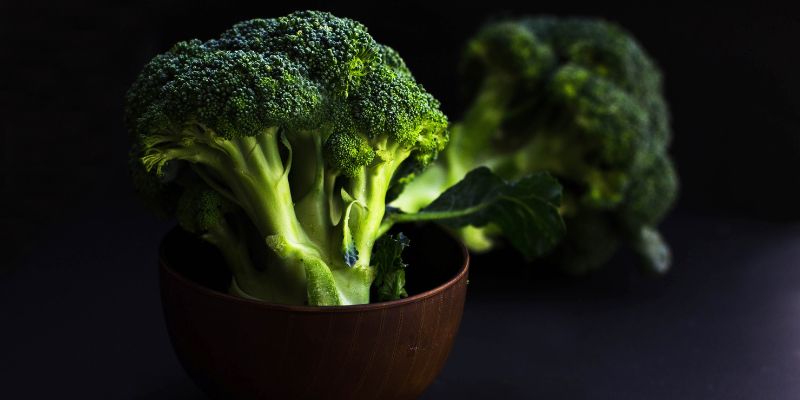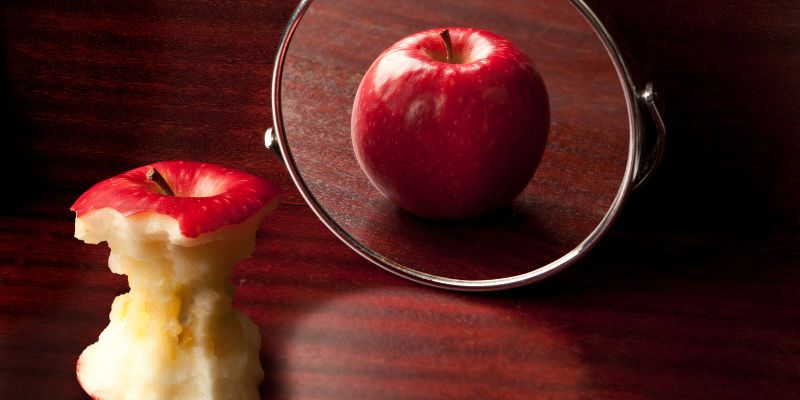
Broccoli is a green vegetable and looks like a minute tree. It belongs to Brassica oleracea and is related to Kale, cabbage, cauliflower, and Brussels sprouts. All of these vegetables are collectively known as cruciferous vegetables.
Broccoli is one of the nutritious vegetables. Consuming broccoli, both raw and cooked, offers you various health benefits. So, add it to your meal as a snack, in soups, or eat raw broccoli with dip!
Do you want to know more about broccoli’s nutritional content and potential health benefits? Continue to read and get to know every little detail about this vegetable you are searching for!

Broccoli Nutrition Facts
Broccoli, in its natural form, contains 90% water, 7% carbohydrates, and 3% protein and is almost free of fat. Broccoli’s nutritional facts are:
Fiber
Broccoli has adequate fiber, which supports gut health and may lower your risk of many diseases. It also helps in weight loss.
Carbohydrates
The primary carbohydrates in broccoli are sugars and fiber. One cup of raw broccoli includes thirty-one calories and 6 grams of carbs. Broccoli is a heart-healthy vegetable since fiber constitutes about one-third of its carbohydrates.
Vitamins And Minerals
The vegetable provides vitamins, including Vitamin C, which is important for the immune system. Also, it is an important source of Vitamin K, essential for recovering from injuries and bone health. Broccoli contains minerals such as phosphorus, potassium, and manganese.
Other Nutrients
Another nutrient that is present in Broccoli is Sulforaphane. It protects against different types of cancer. Besides that, it also has Carotenoids, which improve visual health; Kaempferol and Quercetin aid in reducing the risk of heart disease infections and maintaining blood pressure levels.
Calories | 35 |
Protein | 2.3 grams |
Fiber | 2.2 grams |
Carbohydrates | 5.6 grams |
Fat | 0.3 grams |
Vitamin C | Provides 91% of DV (daily value) |
Folate | 15% of DV |
Vitamin K | 77% of DV |
Health Benefits Of Broccoli
Broccoli is full of natural compounds, vitamins, and minerals, all important to your health. Below, you will find the broccoli’s health benefits!
Reduce Inflammation
Inflammation can indicate an infrequent sickness but can also be a symptom of long-term autoimmune diseases like diabetes and arthritis. Broccoli contains sulforaphane, which is an anti-inflammatory agent and reduces inflammation.
Reduce The Risk Of Cancer
Broccoli and other cruciferous vegetables may be useful in “green chemoprevention,” a cancer prevention method in which you can use extracts or the entire plant. Indole-3-carbinol, another compound found in cruciferous vegetables, may have potent anticancer effects.
Good For Bones
Broccoli can strengthen your bones. The vegetable has many nutrients that are necessary for the development of new bone and the maintenance of existing bone density. These include Zinc, Copper, Vitamin C, and Magnesium.
Good For Diabetes
Consuming broccoli can help diabetic people control their blood sugar levels due to its sulforaphane content. Diabetes is less common in people who eat a high-fiber diet than in people who eat low-fiber food. People with diabetes should include broccoli in their diet.

Keeps You Hydrated
You need water to maintain the body’s tissues and organs. In addition, proper hydration helps maintain your body’s temperature, lubricates your joints, moves food through your digestive system, and avoids constipation. Broccoli contains a huge amount of water, which will keep you hydrated!
Better Heart Health
The biggest cause of death is still heart disease. Broccoli protects the heart by decreasing artery damage. Increased consumption of cruciferous vegetables promotes heart health and lowers the risk of stroke, ischemic heart disease, cardiovascular disease, and cerebrovascular illness.
Reduces The Cholesterol
Broccoli is particularly high in soluble fiber, which plays a key role in lowering LDL (bad) cholesterol. Besides that, broccoli's sulfur-containing compound (Sulforaphane) also decreases the cholesterol. Broccoli can support heart health since it lowers the risk of heart disease and high blood pressure by keeping cholesterol levels within a healthy range.
Helps To Balance Weight
Broccoli is another fantastic food for losing weight. This food, which is high in fiber and low in calories, will make you feel fuller for longer periods and prevent overeating.
Good for Gut Health
Broccoli and other brassicas, high in sulfur, help maintain gut health and strengthen your immune system because sulfur boosts the production of glutathione, which is necessary for preserving and repairing the intestinal lining.
Good For Vision
Lutein and zeaxanthin in broccoli decrease age-related macular degeneration, an eye condition that may damage vision. Also, it can be a super food for people suffering from Vitamin A deficiency and night blindness. Beta carotene, found in broccoli, is converted into vitamin A. Thus, this vegetable can improve vision and fulfill vitamin A deficiency.
Balances The Hormonal Level
Indole-3-carbinol (I3C) is a chemical found in broccoli. The compound functions as a plant estrogen and may help balance hormones by controlling estrogen production. Due to its high calcium content, it also helps women suffering from premenstrual syndrome (PMS), which can cause mood swings, food cravings, irritability, and sadness.
Broccoli: Risks And Warning
If you have any health issues, you should avoid broccoli. Ask your doctor what is good for you if you use blood thinners. It is so, as vitamin K, abundant in broccoli, aids blood clotting. Excessive consumption of this vegetable may alter the way your body processes medication.
Bloating and gas can be caused by broccoli as broccoli contains sugars that are difficult for the stomach to digest. The microbes in your gut produce the gas that makes you feel uncomfortable. So, think twice before eating broccoli!
Conclusion:
Broccoli is a good source of fiber, proteins, carbs, fats, minerals, and vitamins. The vegetable can boost your immunity, balance the hormonal level, reduce weight, improve vision, improve heart health, and keep you hydrated.
Besides that, broccoli can reduce the risk of cancer inflammation and is good for diabetic patients and bones. So, why add it to your soup this time? What about enjoying broccoli with your favorite dip?



